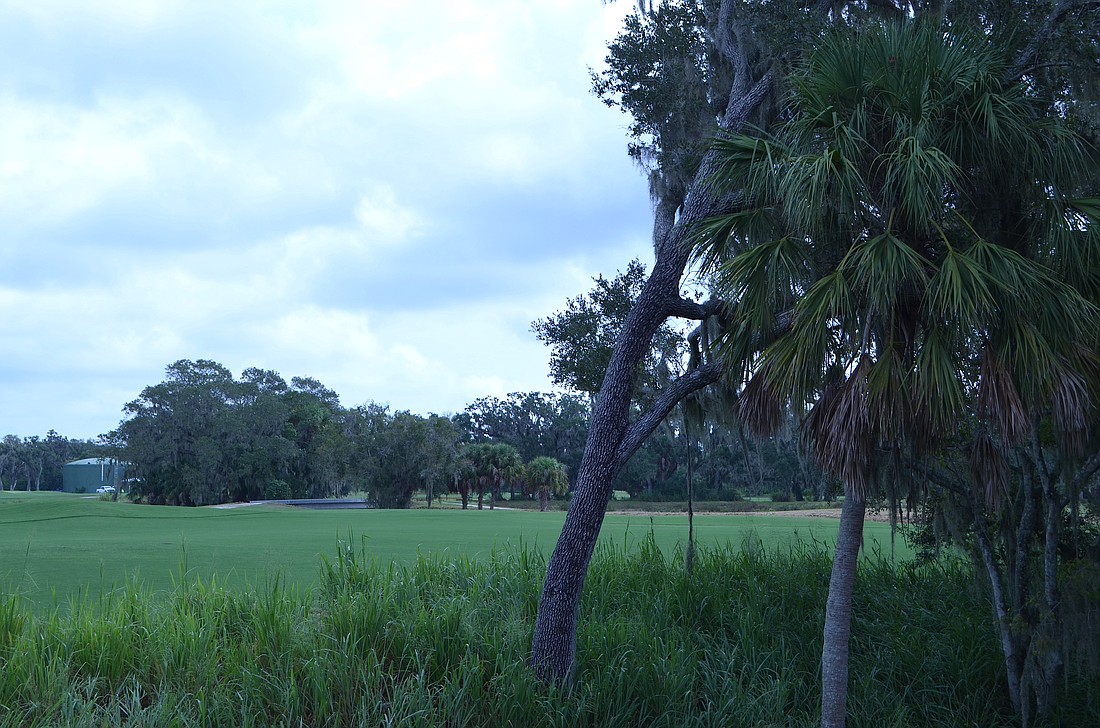- April 28, 2024
-
-
Loading

Loading

With the yearslong awaited opening of the renovated Bobby Jones Golf Course imminent but not yet scheduled, a rate schedule through Nov. 2, 2024 has been unanimously approved by the Sarasota City Commission.
Attempting to strike a balance between accessibility for local residents of the city-owned facility and fiscal responsibility, Indigo Golf Partners Director of Operations Brian Rhodes told commissioners that the goal is for the 27 holes and practice facility to pay for its own operations and cover the $20 million debt service. The debt service paid for restoration of the main course to its original 18-hole Donald Ross layout plus work on an adjacent wetlands and nature preserve, accessory buildings and partial funding for a new clubhouse.
“Our goals for setting the rates is for Bobby Jones to be an asset to the community that will last for another 100 years, be self-sustaining and pay back the bonds and build reserves,” said Rhodes. “Most likely we'll discover some additional things like drainage or irrigation or equipment or new technology that we may have to bring up, so by building a reserve it'll make that much easier.”
The city contracted with Indigo Golf Partners to manage and operate the 18-hole Ross course, the nine-hole Gillespie par-3 course, practice facility and clubhouse. The company will be paid $10,000 per month. All workers at the course are city employees.
Indigo Golf Partners is a subsidiary of Troon Golf, the largest golf club management company in the world.
With the financial goals in mind, Rhodes presented a rate sheet that employs a modified dynamic pricing scheme that uses an automated algorithm to set prices based on demand, similar to but not exactly like that used by hotels and airlines. The difference is there is a floor and a ceiling, and the pricing will not surpass either extreme.
For rates across the board, city residents will receive a 10% discount off the rate at the moment the reservation is made.
For bookings Nov. 3 through Dec. 21, for example, the lowest weekday adult 18-hole rate will be $59 and the highest $109. The algorithm will begin at the target rate of $89 and adjiust accordingly. The weekend rate range is $69-$119 with a target rate of $99. Rates include cart fee, which is $12 and is optional. The rates also do not reflect the 10% locals discount.
Other rate variables include discounts for online bookings, twilight (after 2 p.m.), juniors and leagues.
During peak season — Dec. 22-March 31 — the adult weekday 18-hole rate range is $74-$114 on weekdays with a target rate of $99, and the weekend range is $84-$124 with a target rate of $109.
Likewise, the highest price to play the Gillespie course will be $45 and the lowest $10 with the target rate of $35 in winter and spring and $25 in fall and summer. Although designed for walking, there is a $5 cart fee for those who ride the nine-hole adjustable course. Resident, junior, online booking and league discounts also apply.
Commissioner Jen Ahearn-Koch said she was expecting a greater city resident discount, because it's the taxpayers footing the bond bill.
“I was hoping that the resident would have a much deeper discount. The person who comes from up north somewhere, when they come here to play golf they expect to pay as much as they pay up north,” she said. "They're on vacation. They probably really don't care. But our residents are paying for this course, and so they're the ones that we promised the whole time that would have the deepest discount.”
Rhodes, a Winter Haven resident who operates 14 golf courses in his portfolio, said the caliber of the Bobby Jones course will warrant a competitive price. Of the 65 18-hole equivalent golf courses within a 20-mile radius, 28.5 are private. The other 36.5 are public, and Bobby Jones, he said, will stand out among them. The pricing plan falls roughly in the middle of those public courses, but heavier play will bring more revenue.
“According to the National Golf Foundation, we should budget about 48,000 rounds. On the (Ross) course this upcoming year we have budgeted 56,000 rounds,” Rhodes said. “A couple of reasons for that is location — we’re near the center of population here — and the experience. I believe it's going to be a wonderful experience. Everything is new, there is no deferred maintenance, and the course conditions. The grow-in has been going very well.”
Coinciding with the explosion of golf popularity since the onset of the pandemic are the costs. From personnel to fertilizers the cost to maintain quality golf conditions has, in some instances, tripled. For example, the primary source of fertilizer was Ukraine, Rhodes said, a source that no longer exists.
That reality is reflected in the rates, which draw a stark contrast to 2020, the final year Bobby Jones operated in its prior form of 45 holes. Then, the highest-priced round during peak season was $59, with cart.
“I'm not a golfer. I'm part of the reason we hired somebody to run the golf course for us rather than the city do it is because you are the experts on how the pricing should be,” said Vice Mayor Liz Alpert. “I don't know if this is good or bad. I ran it by my husband who does play golf and said, ‘What do you think of these rates?’ and he said that's pretty good. That was why we hired somebody to do this because you have the experience on how you should run a golf course and how to make a profit.”
Approval of the rates came with a caveat, with Indigo promising to explore better discount opportunities with mechanisms such as loyalty cards, and to work with local high schools to serve as their home course at competitive rates.
Going forward, rates for the following fiscal year will be part of the city’s budgeting process.